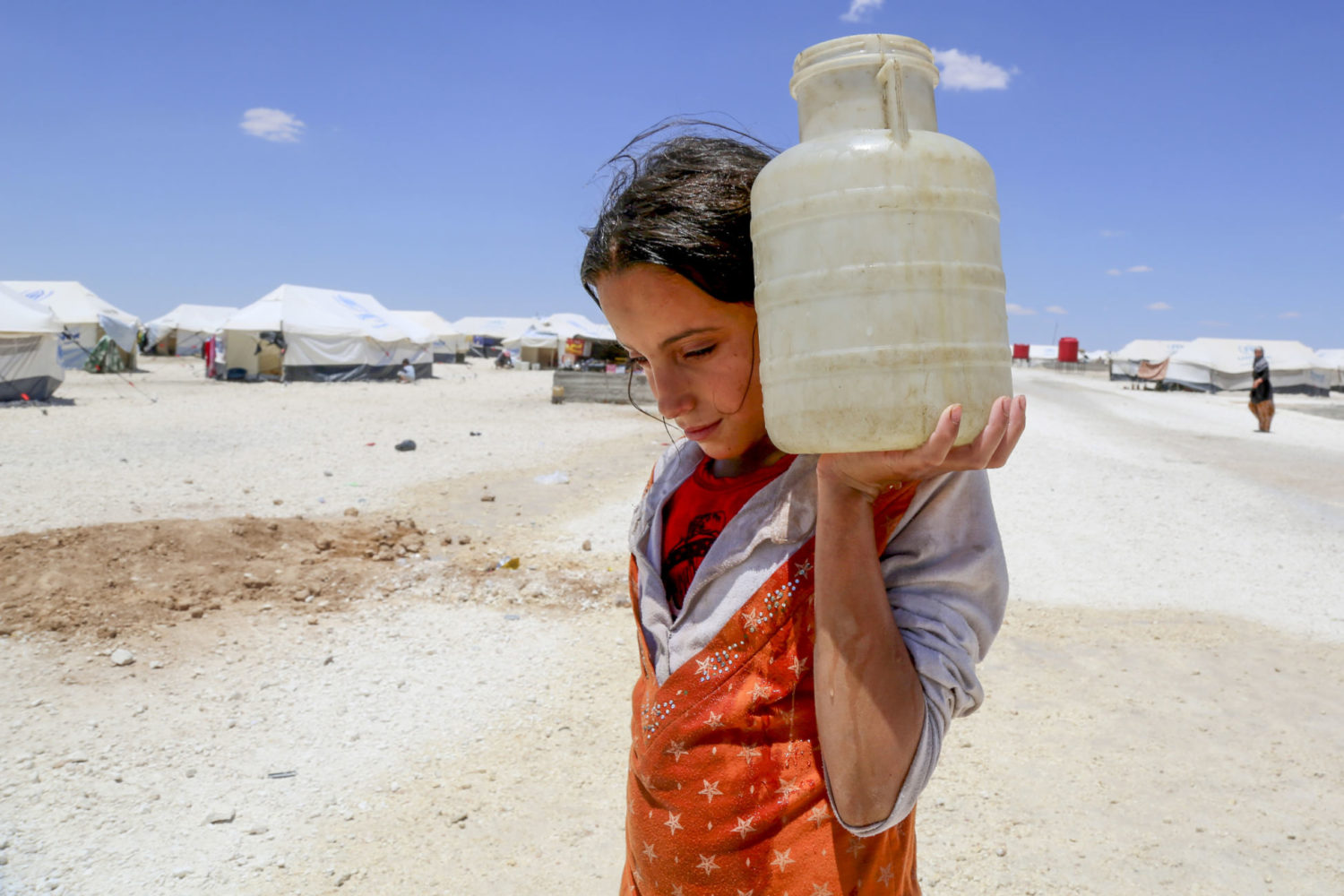22 March 2019 – Children under the age of 15 living in countries affected by protracted conflict are, on average, almost three times more likely to die from diarrhoeal diseases caused by a lack of safe water, sanitation and hygiene than by direct violence, UNICEF said in a new report today.
Water Under Fire looks at mortality rates in 16 countries going through prolonged conflicts and finds that, in most of them, children under the age of five are more than 20 times more likely to die from diarrheal-related deaths linked to lack of access to safe water and sanitation than direct violence.
“The odds are already stacked against children living through prolonged conflicts – with many unable to reach a safe water source,” said UNICEF Executive Director Henrietta Fore. “The reality is that there are more children who die from lack of access to safe water than by bullets.”
Without safe and effective water, sanitation and hygiene services, children are at risk of malnutrition and preventable diseases including diarrhoea, typhoid, cholera and polio. Girls are particularly affected: They are vulnerable to sexual violence as they collect water or venture out to use latrines. They deal with affronts to their dignity as they bathe and manage menstrual hygiene. And they miss classes during menstruation if their schools have no suitable water and sanitation facilities.
These threats are exacerbated during conflict when deliberate and indiscriminate attacks destroy infrastructure, injure personnel and cut off the power that keeps water, sanitation and hygiene systems running. Armed conflict also limits access to essential repair equipment and consumables such as fuel or chlorine – which can be depleted, rationed, diverted or blocked from delivery. Far too often, essential services are deliberately denied.
“Deliberate attacks on water and sanitation are attacks on vulnerable children,” said Fore. “Water is a basic right. It is a necessity for life.”
UNICEF works in conflict countries to provide safe drinking water and adequate sanitation services through improving and repairing water systems, trucking water, setting up latrines and promoting awareness of hygiene practices.
UNICEF is calling on governments and partners to:
- Stop attacks on water and sanitation infrastructure and personnel;
- Link life-saving humanitarian responses to the development of sustainable water and sanitation systems for all;
- Reinforce governments and aid agencies’ capacity to consistently provide high-quality water and sanitation services in emergencies.
ENDS
Notes to Editors:
The report calculated mortality rates in 16 countries with protracted conflict: Afghanistan, Burkina Faso, Cameroon, Central African Republic, Chad, the Democratic Republic of the Congo, Ethiopia, Iraq, Libya, Mali, Myanmar, Somalia, South Sudan, Sudan, the Syrian Arab Republic and Yemen. In all these countries, with the exception of Libya, Iraq and Syria, children 15 and younger are more likely to die from water-related diseases than as a result of collective violence. Excluding Syria and Libya, children under the age of five are almost 20 times more likely to die from diarrheal-disease linked to unsafe WASH than due as a result of collective violence.
The estimates were derived from WHO mortality estimates for ‘collective violence’ and ‘diarrheal deaths attributable to unsafe WASH’ between 2014 – 2016.
Report available here: https://protect-eu.mimecast.com/s/kcpOC0Rm6twX7QfwUrJA?domain=we.tl
Multimedia materials available here: https://weshare.unicef.org/Package/2AMZIF3HHUU0
For more information, please contact:
Alexandra Murdoch, 0207 375 6179, [email protected]
Unicef UK Media Team, 0207 375 6030, [email protected]
About Unicef
Unicef is the world’s leading organisation for children, promoting the rights and wellbeing of every child, in everything we do. Together with our partners, we work in 190 countries and territories to translate that commitment into practical action, focusing special effort on reaching the most vulnerable and excluded children, to the benefit of all children, everywhere.
Unicef UK raises funds to protect children in danger, transform their lives and build a safer world for tomorrow’s children. As a registered charity we raise funds through donations from individuals, organisations and companies and we lobby and campaign to keep children safe. Unicef UK also runs programmes in schools, hospitals and with local authorities in the UK.
For more information please visit unicef.org.uk


